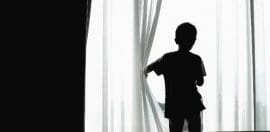Disability representation missing from UK kids’ shows

26 July 2019 at 4:20 pm
People with disability are rarely shown on British children’s TV shows and are often portrayed as villains when they do appear, new research shows.
A report from children’s app company Hopster said that popular UK pre-school shows poorly represented the disability, LGBTQI+, and working class communities.
Analysing the top 50 shows aimed at young children, researchers found there were no lead characters with a disability despite 22 per cent of the UK population having lived experience of this.
More than half of the shows that featured characters with disability used them either in a tokenistic way, or used their disability negatively to make them appear sinister or threatening.
The report noted that in the show Dinotrux, a villain is shown to have Tourette’s syndrome and muscle spasms, while in LEGO Ninjago, the Iron Baron is a villainous character with prosthetic limbs and low vision.
Hopster CEO Nick Walters said it was clear from the research that stereotypes were a problem in children’s TV programming.
“It’s so important that kids from all types of families see themselves represented in the shows they watch,” Walters said.
The report found a severe lack of LGBTQI+ representation, with only 7 per cent of episodes in the study alluding to an LGBTQI+ character.
Working class families were also majorly underrepresented, appearing in just 9 per cent of shows despite making up 50 per cent of the population.
Child and educational psychologist Laverne Antrobus said this highlighted how easily stereotypes and a lack of diversity could creep into the content children were watching.
“Pre-schoolers as the next generation need to view programs that invite them into a world, where the rich layers of difference are celebrated and crucially seen within their favourite programs,” Antrobus said.
“Parents need to be mindful of the content their kids are watching, as seeing themselves and others reflected on screen will nurture their sense of a society in which everyone is represented and can feel they belong.”
Research has shown that Australia doesn’t fare much better when it comes to diversity on the screen.
A Screen Australia study found only around 4 per cent of characters in Australian drama were people with disability.
The Attitude Foundation told Pro Bono News in 2017 there was a common TV stereotype of the “disabled villain”, which framed disability as the basis of resentment.
The full UK report can be seen here.







